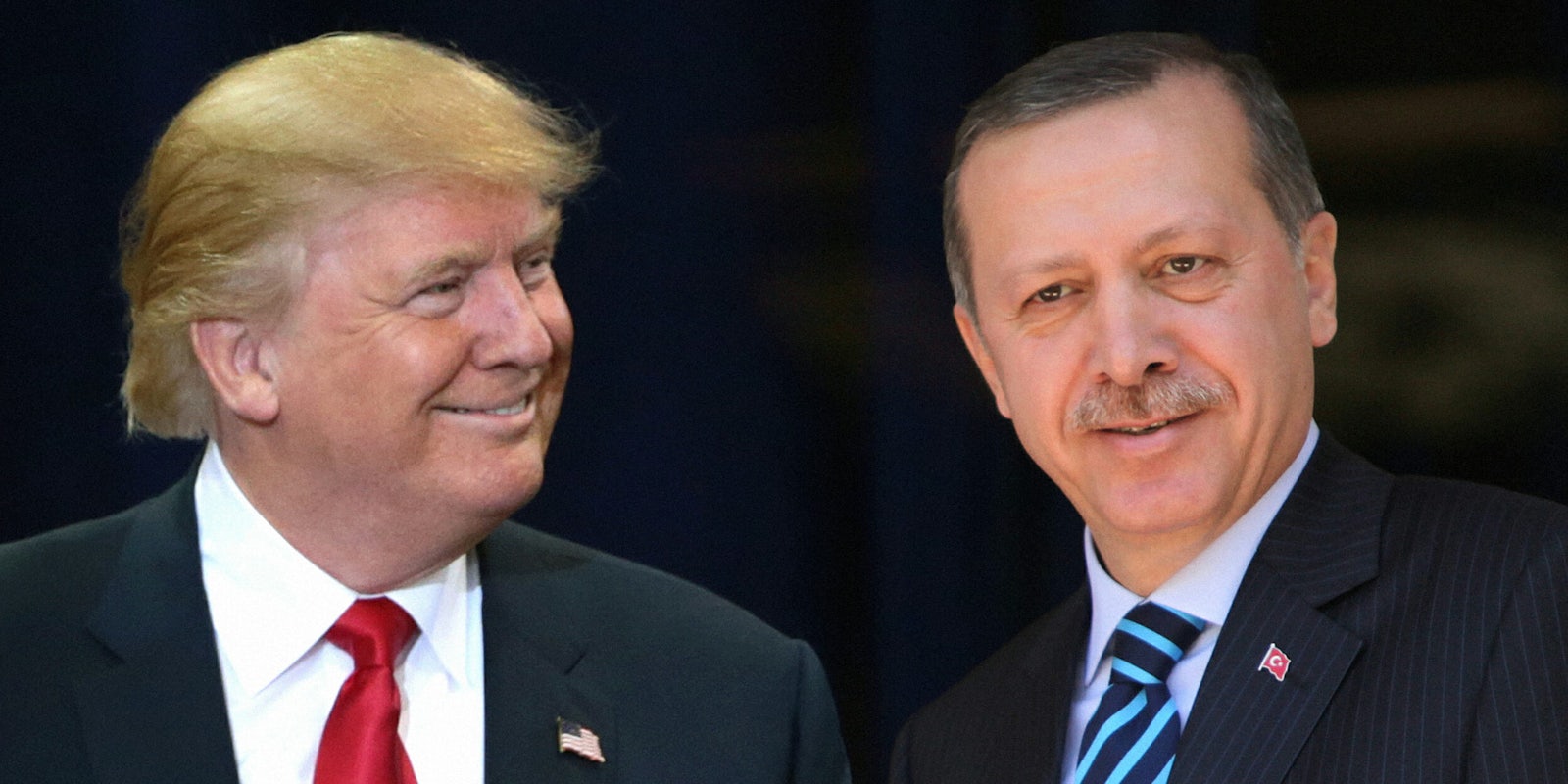President Donald Trump this week called Turkish President Recep Tayyip Erdogan to congratulate him on a referendum victory that will significantly and controversially increase his power, raising questions about Trump’s support of authoritarian leaders and for a fair democratic process.
Trump made the phone call despite questions posed by European leaders and his own State Department over “observed irregularities” as to how the referendum vote was carried out—particularly the High Board of Elections’ decision to accept ballot papers that did not bear the official government stamp—and what the outcome means for democracy in Turkey.
A spokesman for the State Department released a guarded statement urging the Turkish government to “protect the fundamental rights and freedoms of all its citizens.”
“The United States remains committed to strengthening our bilateral relationship,” it continued. “The United States continues to support Turkey’s democratic development, to which commitment to the rule of law and a diverse and free media remain essential.”
Approved by just 51.3 percent to 48.7 percent, the referendum’s narrowly won and contested result will expand Erdogan’s presidential role with significant constitutional authority while limiting the power of parliament. Political opponents within Turkey and activists organizations have criticized the autocratic consolidation of power which, they argue, undermines democratic processes and accountability.
In another apparent contrast to Trump’s congratulations of Erdogan, White House Press Secretary Sean Spicer said on Monday that the official administration position would reflect the outcome of an ongoing assessment by an international commission into the validity of the referendum, not expected until next week.
The Organization for Security and Cooperation in Europe (OSCE) protested that the decision to accept unofficial ballots opened the vote to fraud, but the empowered Erdogan dismissed the OSCE assessment and described the referendum as “the most democratic election… ever seen in any Western country.”
Under the new rules, Erdogan’s office will have the power to issue decrees, suspend parliament, appoint top officials as well as declare a state of emergency.
Former Republican Evan McMullin, who ran as an independent presidential candidate in 2016, criticized Trump on Twitter for supporting “a foreign dictator’s power grab,” warning of the gesture’s implications for liberty at home.
https://twitter.com/Evan_McMullin/status/854097776367587328
According to Turkish officials, the leaders also discussed the situation in Syria, with Trump commending Turkey’s support of recent U.S. military strikes against the regime of dictator Bashir al-Assad.


